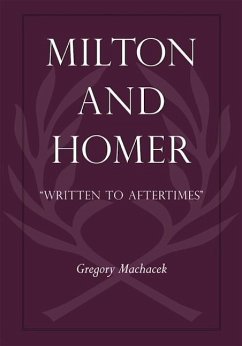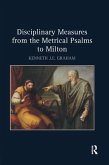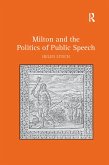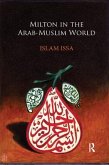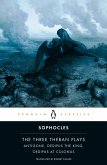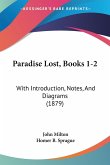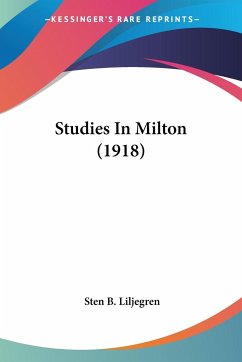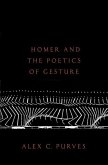This is the first full-length study of the relation between Milton and Homer, arguably Milton's most important precursor. It is also the first study of a major interpoetic relationship that is responsive to the historicist critical enterprise, which has been dominant within literary study for the past 30 years, and engages the work of theorists of canon formation such as Barbara Herrnstein Smith and John Guillory. Most studies of the relation between one poet and another are wholly diachronic, examining the way in which brief, verbal recollections of the earlier poet?allusions?enhance or qualify the significance of passages in the later, alluding poet's work. But this study goes beyond that, considering its focal poets within a synchronic framework that allows us to respond to the Homer of mid-seventeenth century England specifically rather than to some transhistorically unvarying Homer, thus revealing that Homer is important not only to the significance but also to the canonical status of Paradise Lost. Machacek not only examines the ways in which Homer enriches our understanding of Paradise Lost, but also argues that Milton was guided by the ways that Homeric epics were being reproduced in his time to leave something so written to aftertimes as they should not willingly let it die. The Homeric poems influenced Milton in his own ambition of composing an enduring work of literature, as Machacek details in chapters on the war in heaven as moral exemplum; on Milton's negotiation of the contradictions inherent in the genre of Christian epic; on the relation of Paradise Lost to the emerging critical categories of originality and the sublime; and on the institution of the school, to which Milton entrusted the perpetuation of his epic. Milton's approach to (and success at) securing canonical status for Paradise Lost provides important insights not only into his own artistry, but into the dynamics of literary canon formation in general. Milton and Homer will appeal to Miltonists, classicists, scholars of early modern literature, and those interested in the debate over the formation of the literary canon.
Hinweis: Dieser Artikel kann nur an eine deutsche Lieferadresse ausgeliefert werden.
Hinweis: Dieser Artikel kann nur an eine deutsche Lieferadresse ausgeliefert werden.

